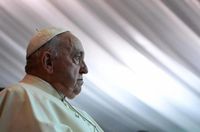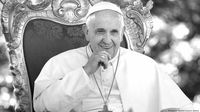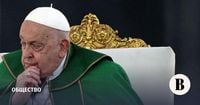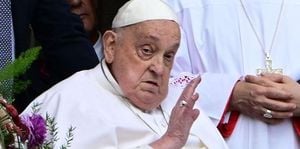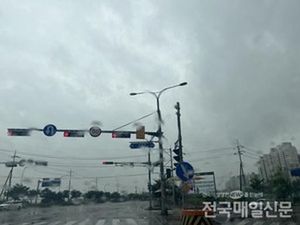Pope Francis, the spiritual leader of the Roman Catholic Church, has passed away at the age of 88, as announced by the Vatican on the morning of April 21, 2025. Cardinal Kevin Farrell, the camerlengo of the Holy Roman Church, expressed deep sorrow in a statement, declaring that the Bishop of Rome returned to the House of the Father at 7:35 am. He noted that Pope Francis dedicated his entire life to serving God and His Church, teaching the values of the Gospel with faithfulness, courage, and universal love, especially towards the poorest and most marginalized.
In a poignant farewell, Cardinal Farrell said, "With endless gratitude for his example as a true disciple of the Lord Jesus Christ, we commend the soul of Pope Francis to the boundless merciful love of the Triune God." This announcement marks a significant moment in the history of the Catholic Church, as Francis was the first Latin American pope and the first Jesuit to hold the papacy.
Pope Francis had been in declining health for several months leading up to his death. On February 14, 2025, he was hospitalized at the Agostino Gemelli hospital in Rome for treatment of bronchitis. His condition worsened, and on February 18, doctors diagnosed him with double pneumonia. The Vatican reported that he was suffering from a polymicrobial infection, complicating his treatment. Despite these challenges, the Pope remained in good spirits during his hospital stay, which lasted 38 days.
On Easter Sunday, April 20, 2025, Pope Francis made his final public appearance, greeting worshippers in St. Peter's Square and delivering his traditional Easter message, Urbi et Orbi ('To the City and the World'). This address was read by Archbishop Diego Giovanni Ravelli, as the Pope's health condition had been uncertain. In his message, he addressed the ongoing conflict between Israel and Hamas, expressing concern over the rising tide of anti-Semitism globally and focusing on the humanitarian crisis in the Gaza Strip.
He urged all parties involved in the conflict to cease hostilities, release hostages, and provide relief to those suffering from hunger. "The principle of humanity should never be lost as a guide to our daily behavior," he emphasized, calling for political leaders to direct resources towards helping the needy and combating hunger. He also stated that the Easter holiday should serve as an opportunity for the release of war prisoners and political detainees.
Pope Francis, born Jorge Mario Bergoglio on December 17, 1936, in Buenos Aires, Argentina, was the son of Italian immigrants who fled fascism. He began his religious studies in 1958 and was ordained as a priest in 1969. Over the years, he held various positions within the Church, including serving as the provincial superior of the Jesuits in Argentina and later as the Archbishop of Buenos Aires.
He was appointed cardinal by Pope John Paul II in 2001 and became Pope on March 13, 2013, following the resignation of Benedict XVI. His papacy was marked by a commitment to reform and transparency within the Church, including addressing issues of corruption in the Vatican Bank and the sexual abuse crisis that has plagued the Church for decades.
Francis was also known for his progressive views on social issues, including environmental concerns, which he addressed in his 2015 encyclical, Laudato si'. His approach often emphasized compassion, humility, and a focus on the marginalized. He famously chose to live in the Santa Marta guesthouse instead of the Apostolic Palace and frequently used public transportation, eschewing the traditional trappings of papal power.
In the years leading up to his death, Pope Francis's health had been a topic of concern. He underwent surgery to remove part of his lung at the age of 21 due to a severe infection and had faced various health issues, including arthritis and gastrointestinal problems. In May 2022, he made headlines by appearing in a wheelchair due to his deteriorating condition, leading to the cancellation of several planned trips.
Following the announcement of his passing, tributes poured in from around the world. Israeli President Isaac Herzog remarked that Pope Francis was a man of deep faith, peace, and compassion, reflecting the sentiments of many who recognized his contributions to interfaith dialogue and global humanitarian efforts.
The death of Pope Francis ushers in a period of mourning for millions of Catholics and people of goodwill worldwide. The Vatican is now preparing for a conclave, a closed assembly of cardinals from around the globe, who will gather to elect his successor. Among the names mentioned as potential candidates are Matteo Zuppi, known for his role in diplomatic efforts in Ukraine, and Cardinal Pietro Parolin, the Vatican's Secretary of State.
As the Catholic Church reflects on the legacy of Pope Francis, his commitment to service, social justice, and the teachings of Christ will undoubtedly continue to inspire future generations. His ability to connect with people from all walks of life, his emphasis on mercy, and his call for peace and compassion in a troubled world will remain hallmarks of his papacy.

